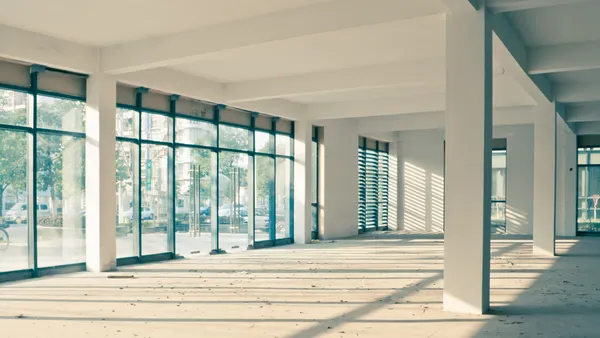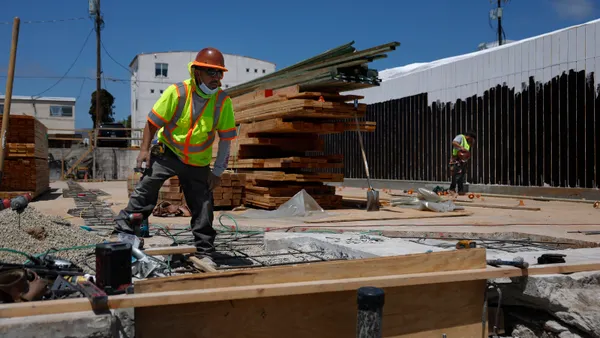Dive Brief:
- Boston Mayor Martin Walsh has announced that a new fund, the Boston's Way Home Fund, has been established to raise private money to combat chronic homelessness. He made the announcement during his second inaugural address on Tuesday, in which he laid out an agenda for his next term.
- The plan is for the fund to raise $10 million in four years, which will be used to create 200 units of long-term housing for people experiencing chronic homelessness.
- The mayor invites individuals and organizations to contribute to the fund. Bank of America kicked off the fund with a $250,000 donation.
Dive Insight:
The city's announcement noted that Boston is among the municipalities moving away from the traditional model of relying solely on homeless shelters and instead trying a holistic model that could have better long-term success rates. Seattle also is looking at collecting money to fund housing for the homeless, but if approved, that proposal would use a new business tax. Austin's tiny home village that provides long-term housing for people experiencing homelessness is also expanding. Boston's release said: "Rather than counting on shelter as the solution to the issue, Boston has moved toward a housing-first mode, where an individual's entrance into the shelter system is also their entrance to a path toward permanent, stable housing."
Boston's fund focuses specifically on chronic homelessness, which is a nuanced and widely misunderstood problem. The U.S. Department of Housing and Urban Development considers a chronically homeless person an individual who has been continuously homeless for at least a year, or those who have had four lengthy periods of homelessness in the last three years. Along with those criteria, a chronically homeless person suffers from a disabling condition — such as a physical illness, disability, serious mental illness or substance addiction — that prevents them from doing work or performing daily activities. Although these conditions might be many people's stereotypes of the average homeless person, the reality is that the chronically homeless make up about 15% of the nation's homeless population, according to the National Alliance to End Homelessness.
Even though the chronically homeless constitute a small portion of the entire homeless population, the problem often proves more difficult to solve than short-term homelessness. About 40% of people experiencing homelessness have some income, but not enough to cover housing costs at market prices. However, chronically homeless people, by definition, do not have the capacity to hold steady work. Commonly used solutions for chronic homelessness involve securing a supply of low-barrier, long-term housing to create stability in addition to providing health services to treat individuals' physical ailments.
Many cases of chronic homelessness occur in areas that do not have an ample supply of housing, especially affordable housing. That creates a conundrum for cities that wish to convert regular housing units into long-term homeless housing. Boston and its surrounding municipalities make up one of the most housing-strapped areas in the country, and one of the most expensive. That prompted 14 cities to band together last month to form a regional housing partnership that will come up with ideas to increase the number of housing units in the area. Days after that announcement, Massachusetts Gov. Charlie Baker announced an initiative to create 135,000 housing units throughout the state.
Boston's Department of Neighborhood Development contracted the Corporation for Supportive Housing to figure out how much housing and supportive services the city could use. That's how it came up with the 200 unit plan and the $10 million funding goal. It's unclear exactly how or where the city intends to create the units for housing the chronically homeless once the monetary goal is met. The timeline for taking action is also unclear; the mayor simply stated the aim of raising the money over the next four years of his term.











